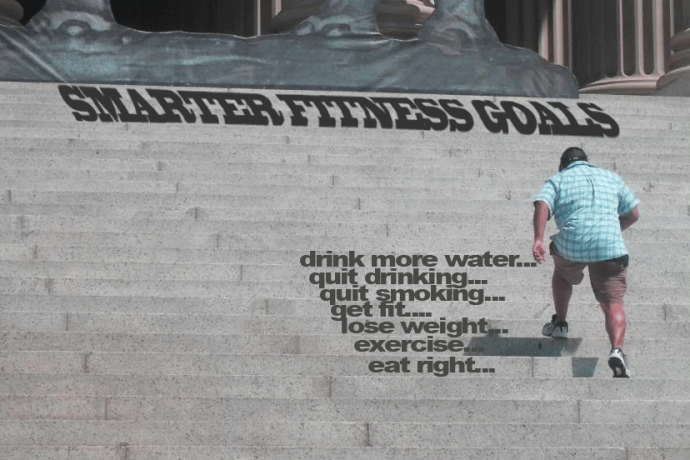Despite the physical punishment that we put ourselves through to achieve results, it can be just as difficult to control the mind to maintain the motivation and focus. Every journey begins with a single step and so it is with exercise; Day to day gains are hardly perceptible but it’s the sum of the parts which makes the difference in the long run. Like learning to play an instrument, it’s the endless hours of practice which count for the difference in the end.
As with any long journey it’s helpful to have a map or in our case a set of goals. These should be short (3 months), medium (6 months) and long term (1 year) and after one year we reset our objectives. As in business, goals should be SMART;
Specific
Measurable
Attainable
Realistic
Time Bound
A SMART goal could be to reduce body fat by 10%, through diet and fitness, within 3 months. Your goals should be realistic, otherwise they can have the opposite effect and simply de-motivate and crush your confidence.
Whilst the goals serve as objectives you will also need planning in order to attain them. Here, I feel its simply best to plan for the week ahead – think about your routine (weight,sets and reps) and your diet. It is useful to have a training log which you can design yourself or can easily be obtained over the web. Planning for diet could mean shopping and planning for the meals ahead, otherwise there’s a tendency to eat whatever is in the cupboard, which may not necessarily be the best option.
Here are some tips and ideas to maintain motivation.
- Count down on reps – Psychologically it seems much easier when the number is decreasing and the target is getting smaller, rather than getting larger.
- Do least favorite sets first while you are fresh and when motivation is probably at its peak, to get them out of the way.
- Mix up the routine to keep it varied – If a machine is busy, rather than standing and waiting, move on the next available piece of equipment in your exercise routine and then return when it frees up.
- Don’t weigh yourself everyday – it doesn’t matter if you’re trying to lose weight or bulk up, the same principle applies. Weighing yourself everyday is like watching stock prices every 15 minutes and I believe is counter-productive.
- After a hard day, and when the absolutely last thing you want to do is go down the gym, think ahead to two short hours time, when you could be energized and feeling mentally and physically positive.
- Be in the moment – concentrate on what you’re doing at that moment in time; form, posture,technique and don’t get distracted or worry about anything else. A good low-impact cardio exercise is cycling, which as you do, you should have your head down, thinking about the next 20 yards, rather than looking ahead 1 mile further down the road, where there seems to be no end in sight.
In summary, set yourselves realistic objectives at timely intervals and have a plan on how you propose to achieve them.






